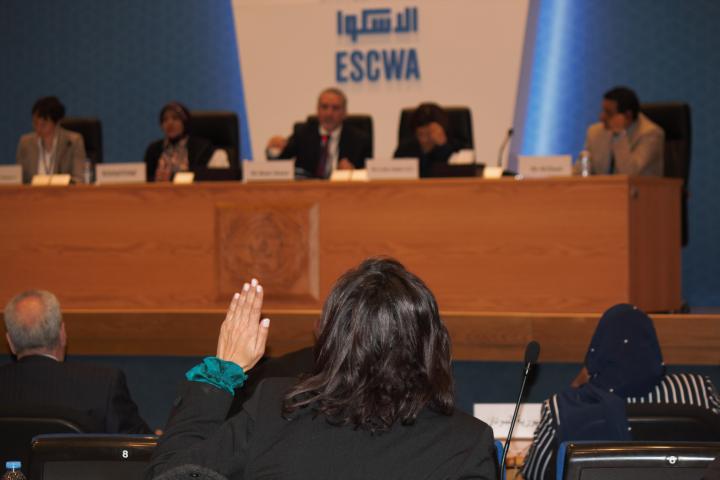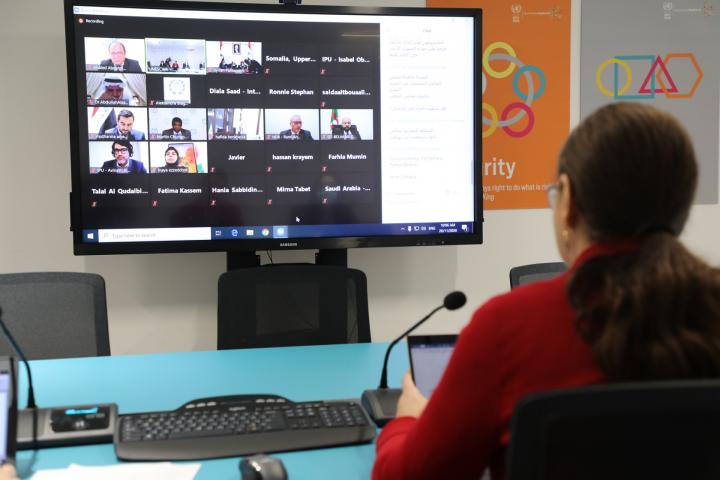
Strengthening Parliamentary Engagement in Climate Action in the Arab Region
The 2022 Arab Parliamentary Forum on the 2030 Agenda presents a unique and timely opportunity to examine the role of parliaments in addressing the severe threats of climate change in the Arab region post-COP27. The focus is on highlighting existing and effective mechanisms for strengthening parliaments' engagement in shaping policy frameworks and implementing the Sustainable Development Goals (SDGs) and climate-related commitments through their legislative, oversight, budgetary and representative roles. Proposed key messages will feed into the Arab Forum for Sustainable Development for 2023.
The Forum is jointly organized by ESCWA and the Inter-Parliamentary Union, in partnership with the United Nations Development Programme. It builds on the previous Arab Regional Parliamentary Fora on the 2030 Agenda held in 2019, 2020 and 2021, as well as the Regional Seminar for Parliamentarians on 2030 Agenda held in 2017.
Participation in this Forum is by invitation only.
Please refer to the information note for further details.

